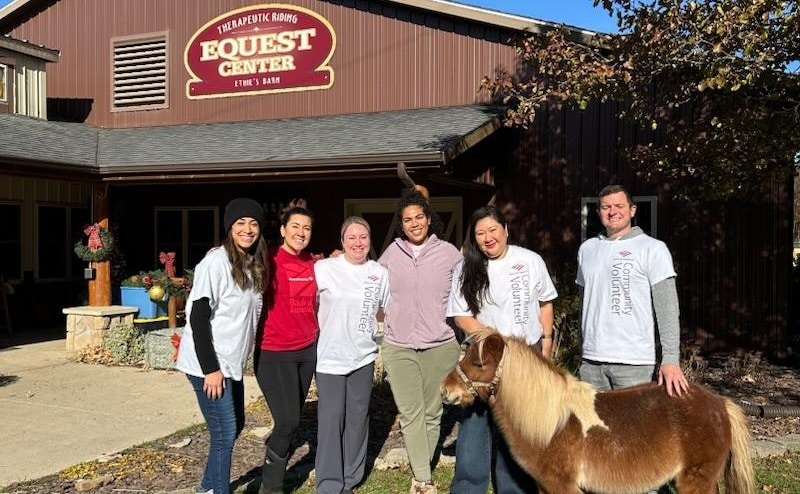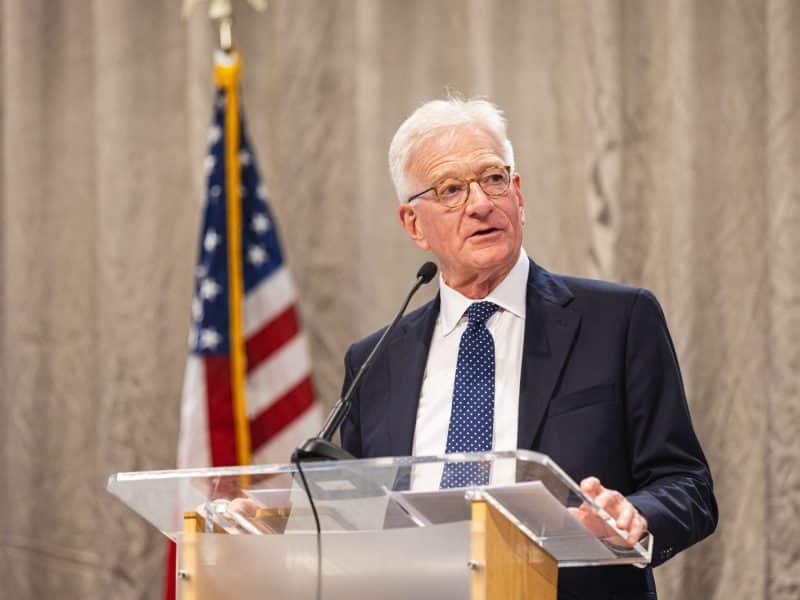Kent County COVID-19 Grants help college students in need succeed
Kent County Non-Profit Organization COVID-19 Grant Fund awards to Grand Rapids Community College and West Michigan Center for Arts + Technology will help college students.
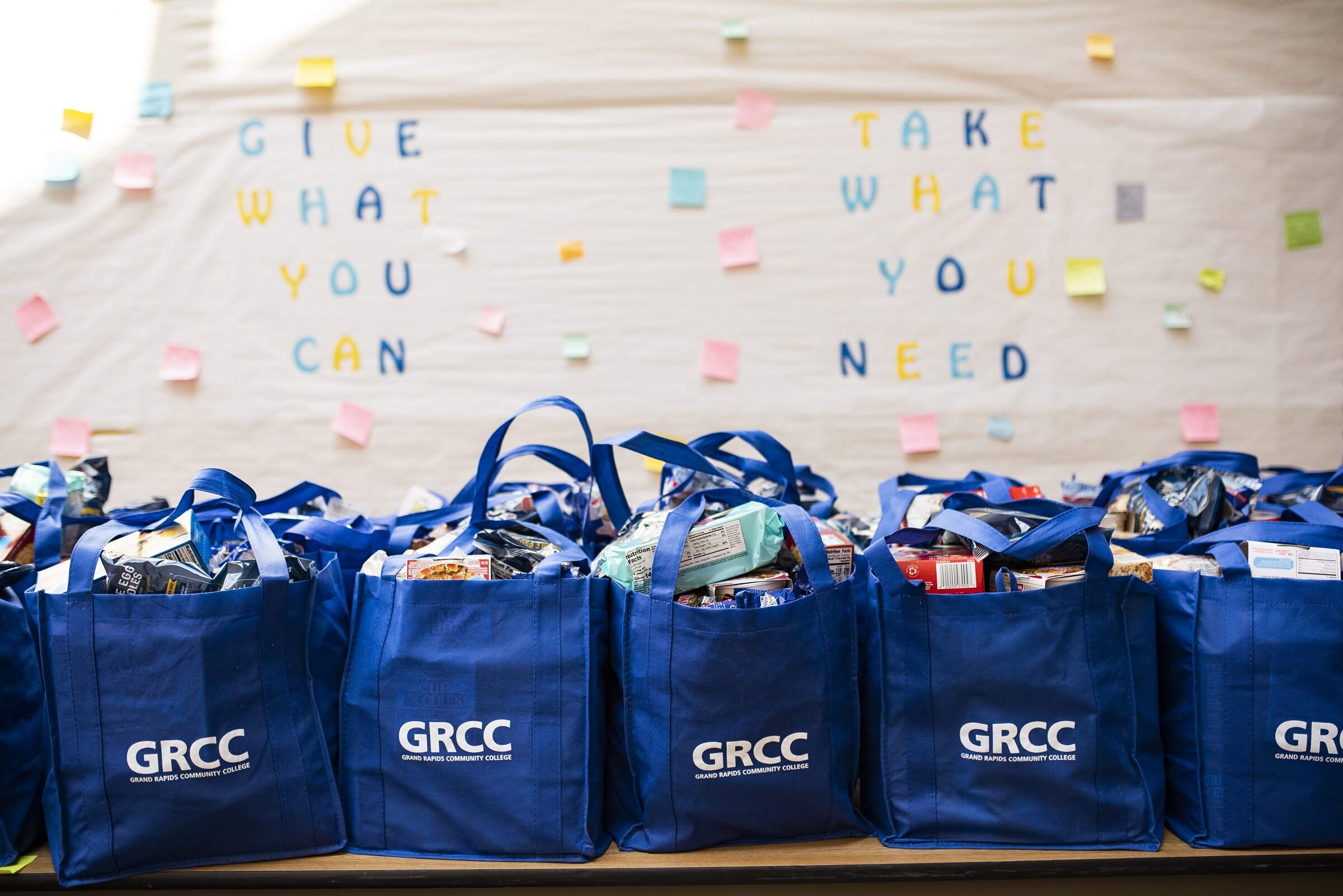
With college campuses as the focus of recent COVID-19 outbreaks, images of frat parties, beer pong, and irresponsible antics may come to mind. Here in Kent County, the pandemic has hit college students hard. The Kent County Non-Profit Organization COVID-19 Grant Fund is helping.
One beneficiary, Grand Rapids Community College (GRCC) Student Life and Conduct College Action Project has received $48,000 to help students with groceries and hygiene products.
“We know that about 35% [of GRCC students] are food insecure and 35% are housing insecure at any time; 10% have been homeless for two nights in the last month,” says Lina Blair, director GRCC Student Life and Conduct. “We’ve had a food pantry in our office for the last 10 or so years. Normally, it serves about 60 different students a semester. Since COVID-19, we have served more than 450 different students and given out more than 1,300 packages of food.”
While the Student Life and Conduct department handles student IDs, parking passes, and code of conduct violations, its staff also helps students to get more involved in campus organizations, learn leadership skills, and cover their basic needs.
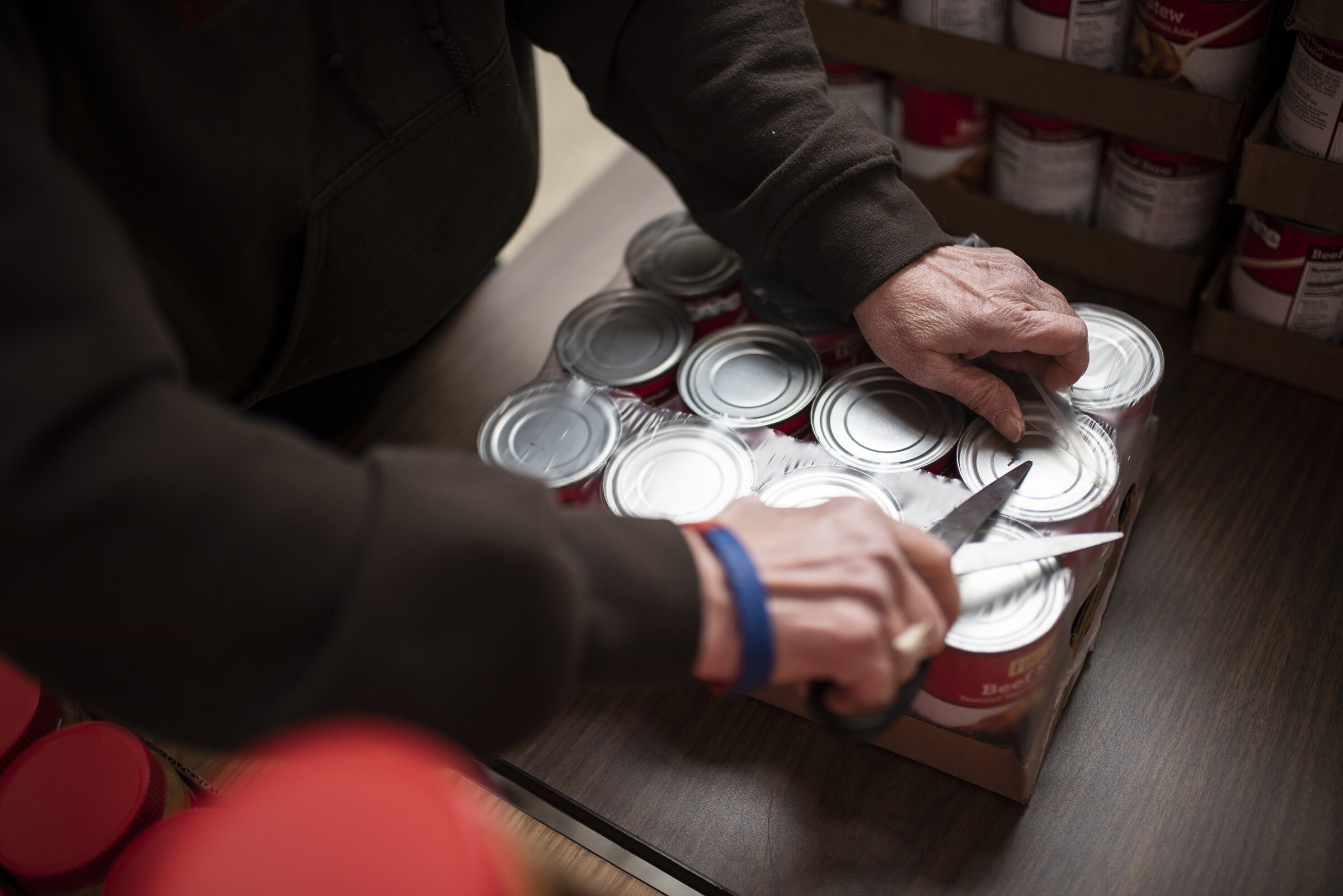
“Students have told us they have lost jobs, or had their hours cut drastically. And, the mental health of our students, so many of them are suffering from anxiety related to COVID-19 with all this uncertainty,” Blair says. “When you don’t know where your next meal is coming from, where you are going to sleep at night, or if you are still going to have a job the next day, that’s really a lot of stress.”
To remedy those concerns, Blair and her staff help students find affordable housing; share resources for free or low-cost health, dental, and vision care; and provide emergency funds for students experiencing an unexpected expense that interferes with their classes.
“For example, if their car breaks down and they have to get to class, they can apply for help,” Blair says. “Since COVID-19, the Student Life and Conduct department started helping students with technology — loaner laptops, Wi-Fi hotspots, all kinds of things.”
In addition to stocking the GRCC pantry, funds will help students with personal hygiene products, and if they have children, disposable diapers and baby food.
“When we’re able to serve them and they are able to focus on their academics instead of their stomach growling in the middle of class,” Blair says. “If they’re not as stuck in survival mode, they can focus more outwardly instead of having to scramble to keep their life together.”
WMCAT weaves safety-net for freshman GRCC Challenge Scholars
Kent County COVID-19 Grant funds were also awarded to West Michigan Center for Arts+Technology (WMCAT). Amy Knape, WMCAT director of development, agrees that COVID-19 significantly disrupted the lives of young adults attending college and post-secondary training programs as well as those high school seniors who were preparing for their first year of college.
“Their pathways to opportunity and success were really disrupted by the pandemic,” Knape says. “Their externships were cancelled. They were close to the end of course work. High school went online creating social isolation and anxiety. Seniors that were going to graduate in the spring lost that extra counseling and support to launch them into that first semester of college.”
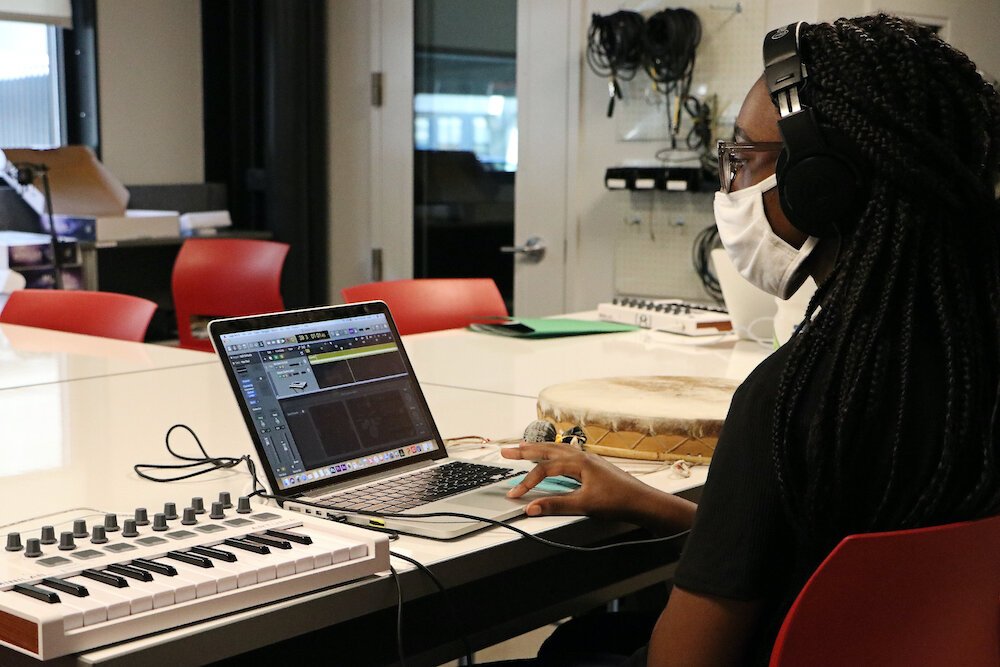
WMCAT equips Kent County residents to create social and economic progress through training in the visual arts, tech engagement, workforce development, and social enterprises. Despite the pandemic, its doors never closed. Instead, staff nimbly adapted online strategies and safe, socially distanced on-site spaces so they could continue to serve their students.
While the $45,000 grant will help WMCAT retrofit all of its programs for success during the ongoing pandemic, one focus is its Step Year program. Designed to help 18 to 24-year-olds explore college and career options, the tuition-free program is open to Kent County residents with a high school diploma or GED. In 2020, as part of the Step Year program, WMCAT and the Grand Rapids Community Foundation developed a pilot program for a small group of Union High School Challenge Scholars, seniors who are now attending GRCC on scholarship. When COVID-19 erupted, WMCAT transformed the program to online and socially distanced on-site spaces.
“The program provides them additional mentoring to help them navigate their first semester at college. We recognize that the first year of college is a huge predictor of whether or not students end up earning their degree,” Knape says. “They are here twice a week on site to work with mentoring. GRCC classes are virtual so this program is also offering them some community building here at WMCAT. They will become each other’s peer support.”
Set up in July by the Kent County Board of Commissioners, the grant fund is distributing $9.5 million in federal CARES Act dollars to local nonprofit and human service organizations providing COVID-19 response. Grants ranging from $5,000 to $150,000 will fund COVID-related services in Kent County that support food security, personal hygiene, transportation, at-risk families and youth, children’s educational programs, and mental and behavioral health.
“I’m constantly surprised and totally in awe of the community resources that we have and how everyone works together—Heart of West Michigan United Way, Kent County, and Feeding America West Michigan, the food bank has been amazing since COVID started,” Blair concludes. “Even smaller institutions. We’ve had donations of fresh fruits and vegetables from Plainsong Farms and the Grand Rapids Pitbull Alliance gave us dog food. It’s really amazing that we are able to provide so much because of these community resources.”
The application deadline for Kent County COVID-19 Grants has been extended to Monday, October 12. The complete list of recipients is regularly updated online.
Images courtesy of WMCAT and GRCC, respectively.

